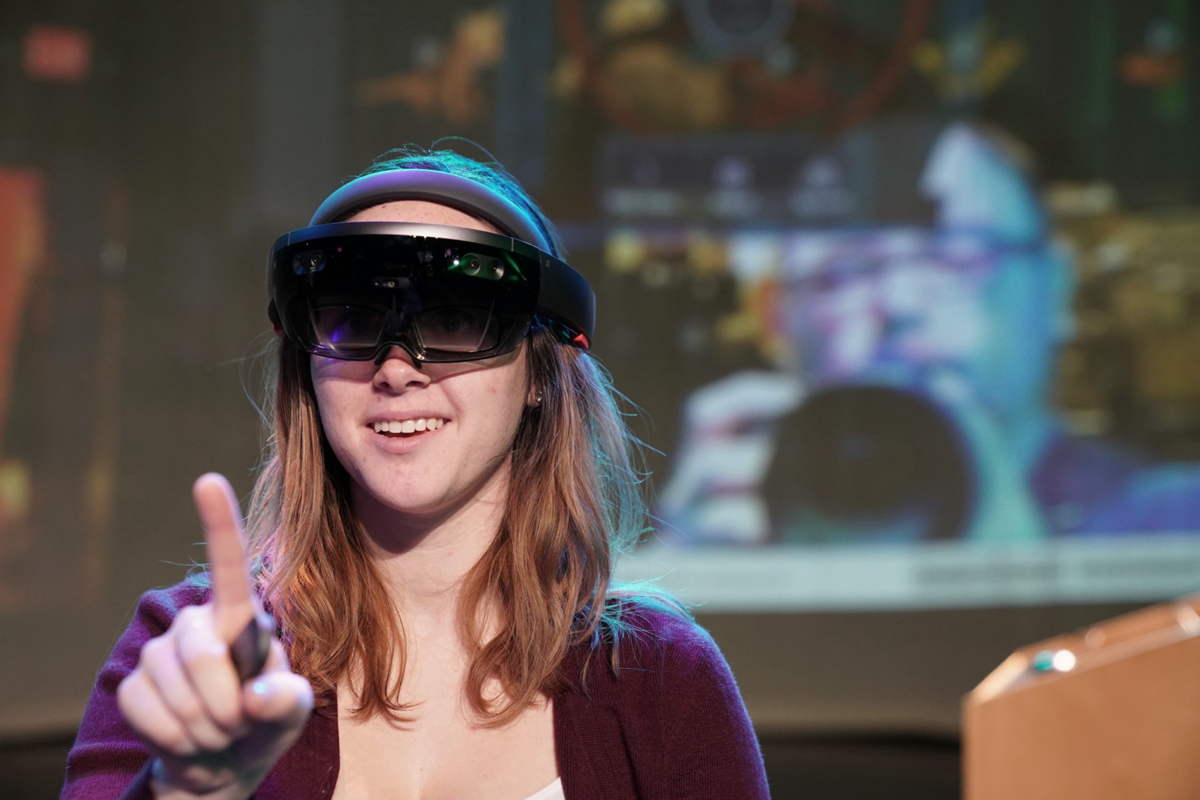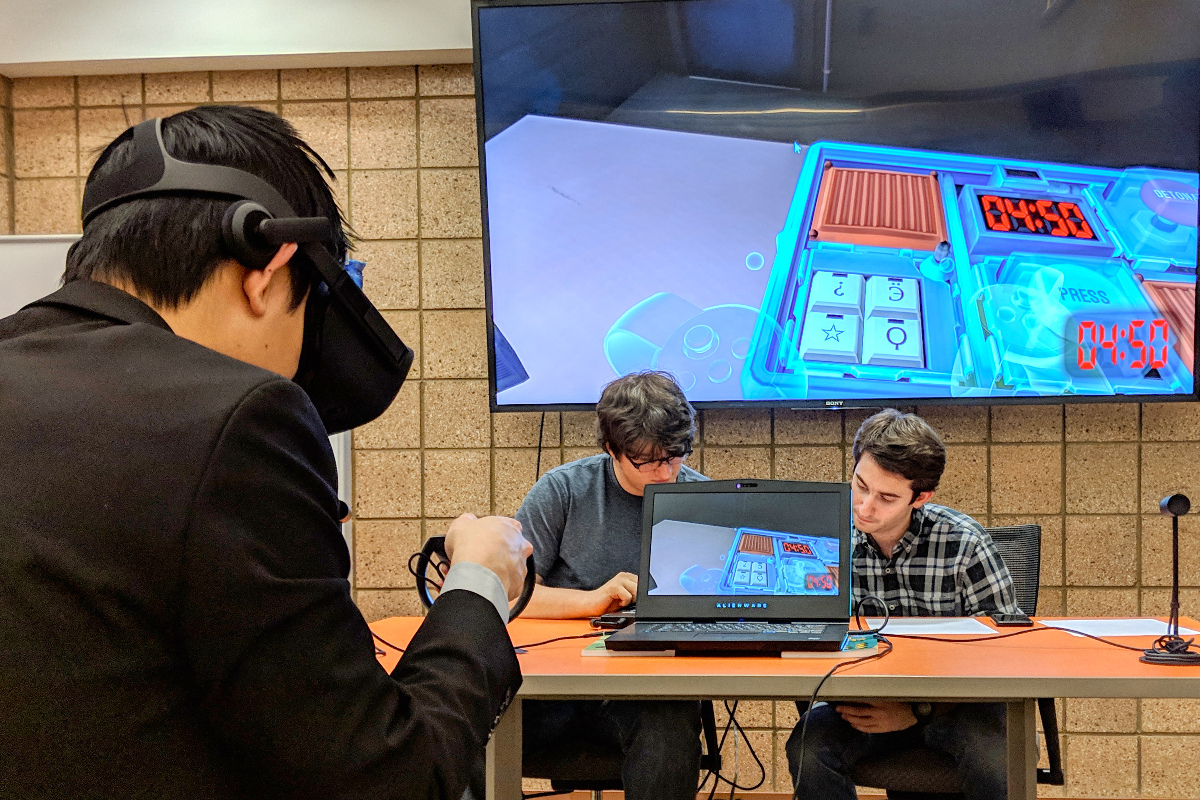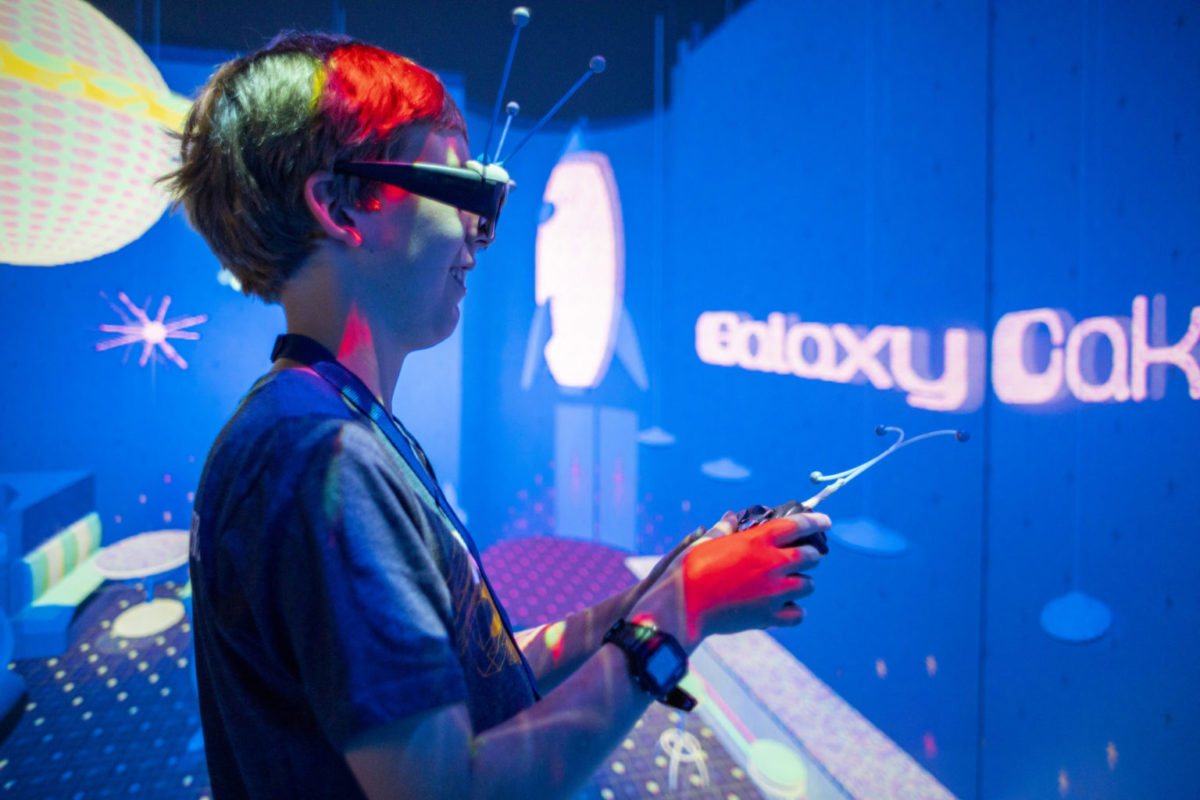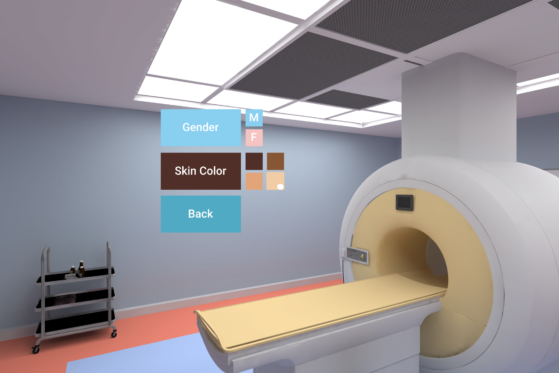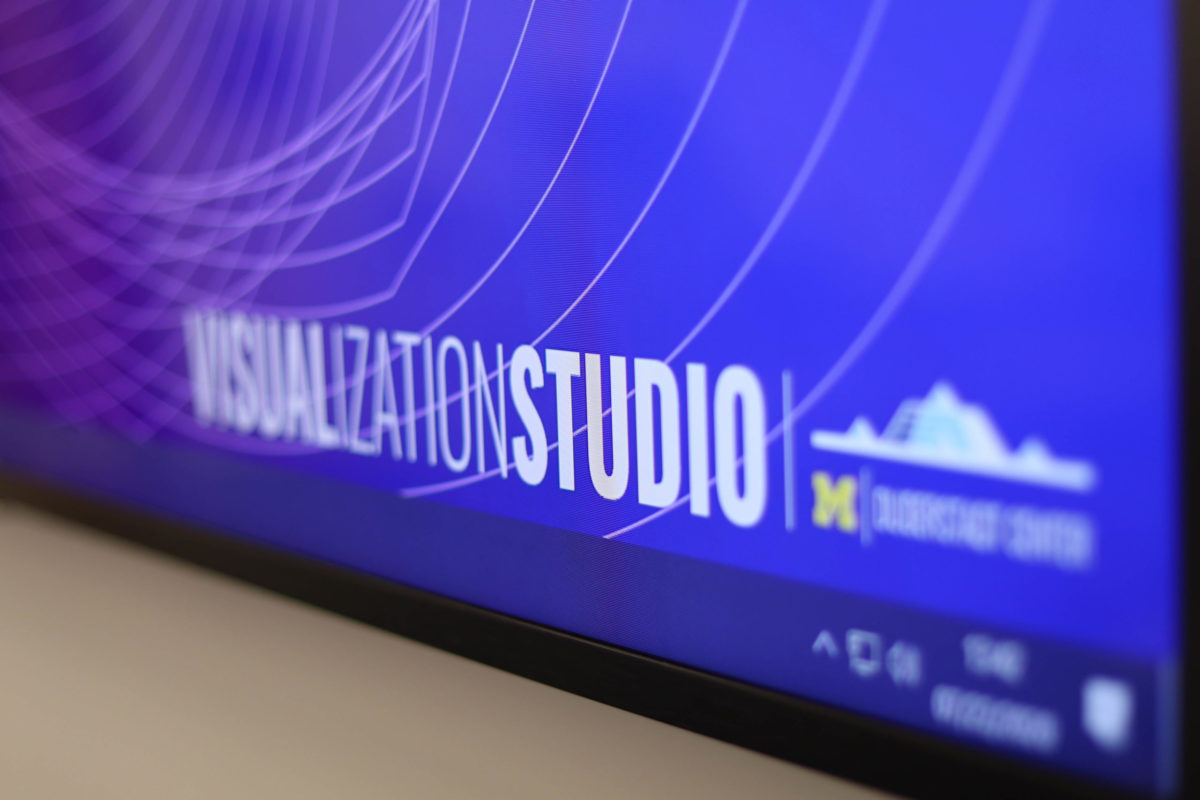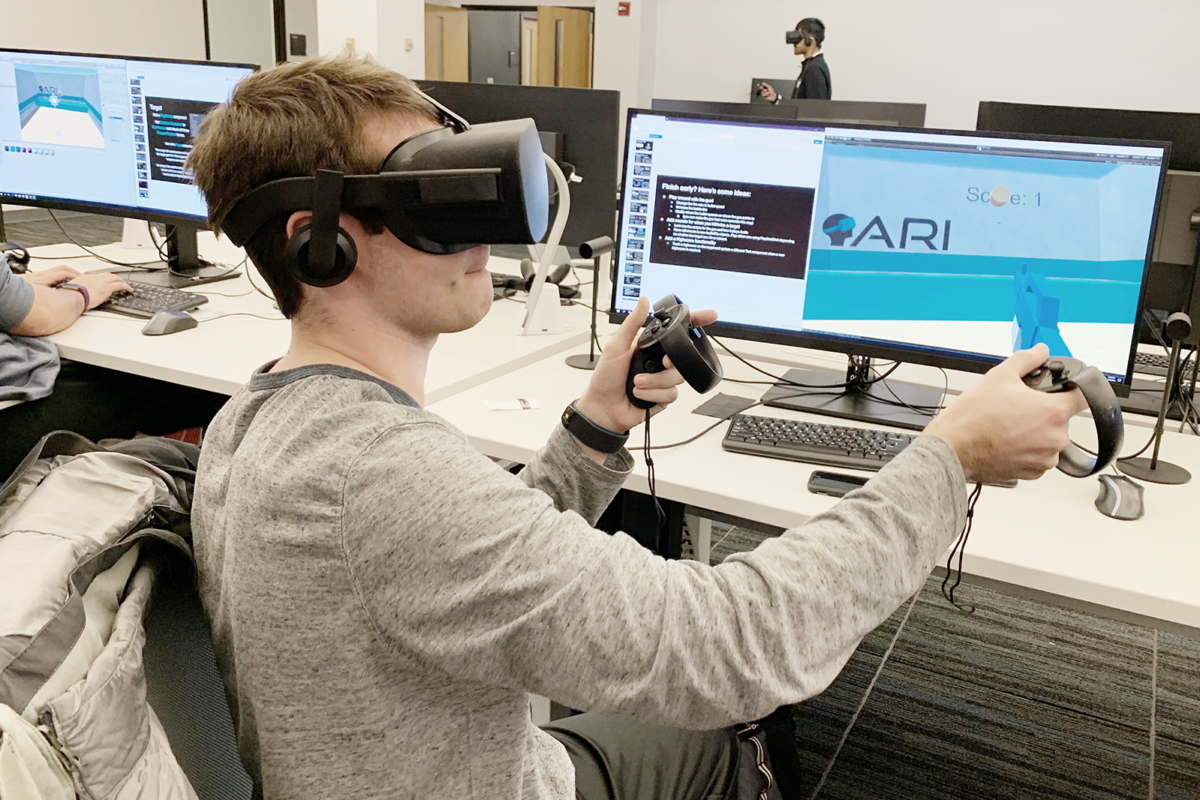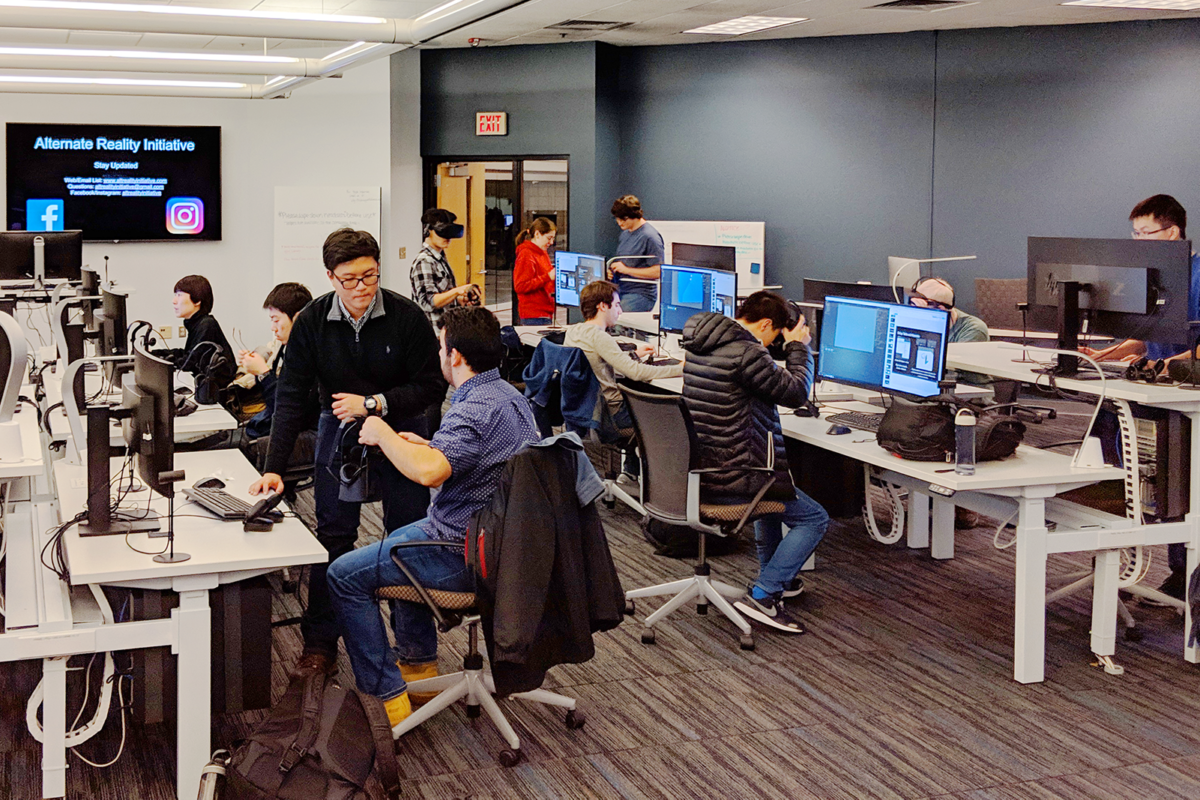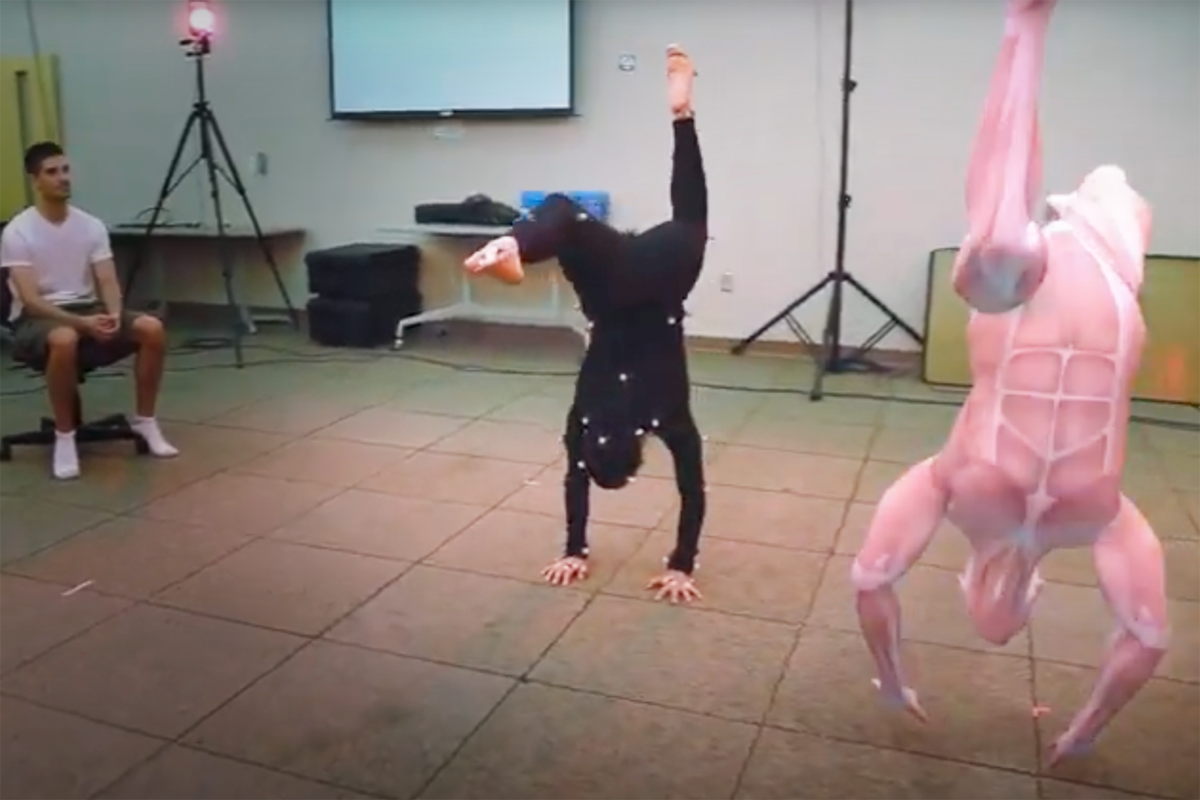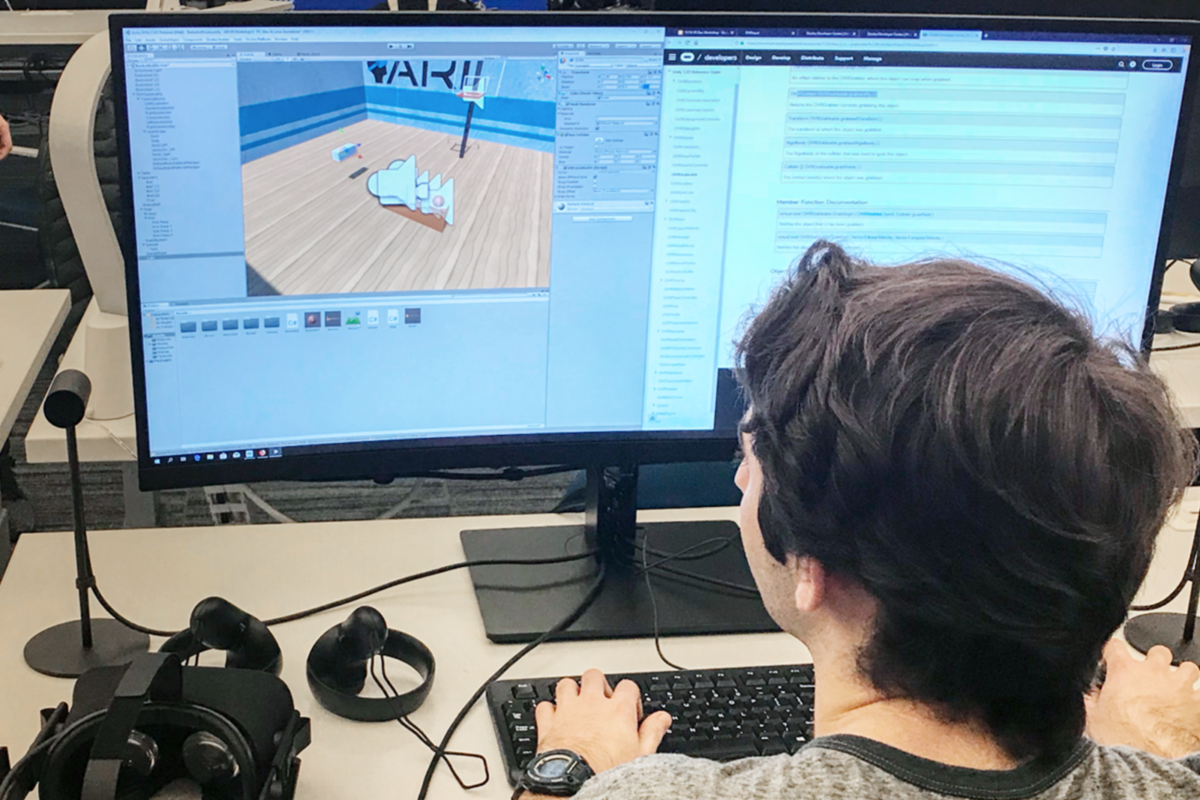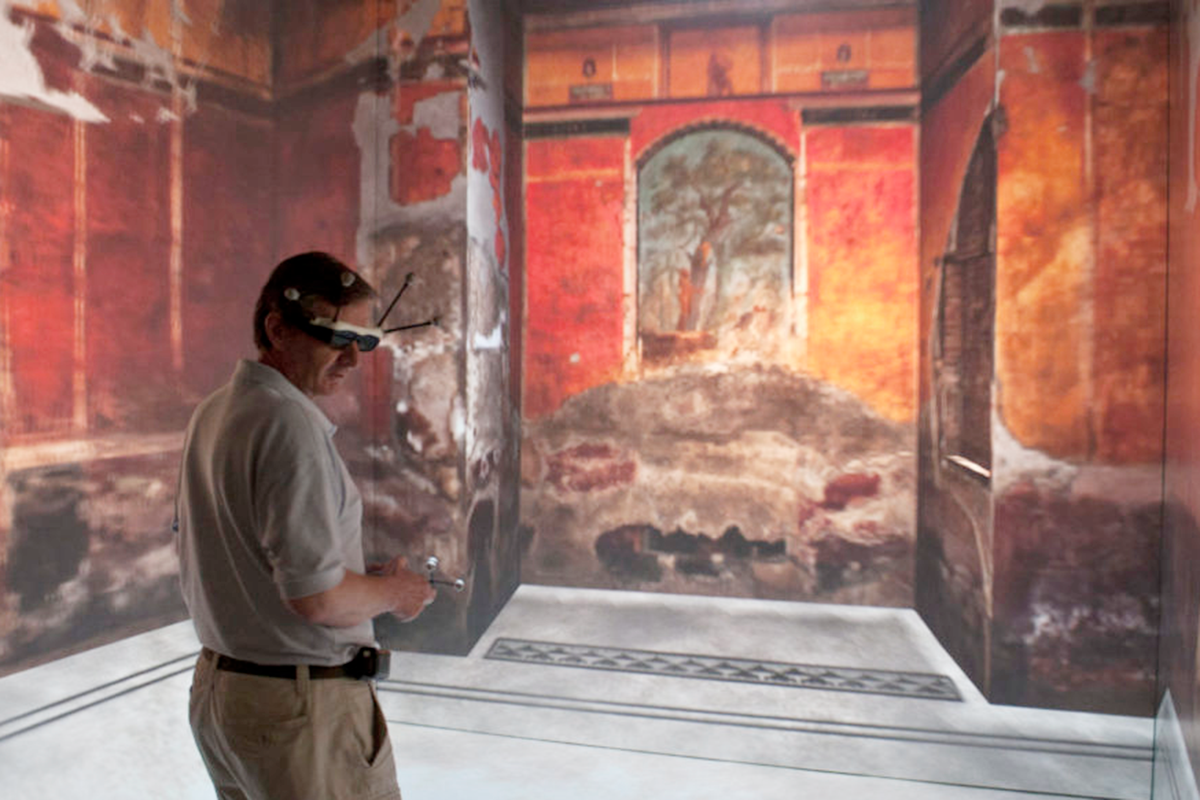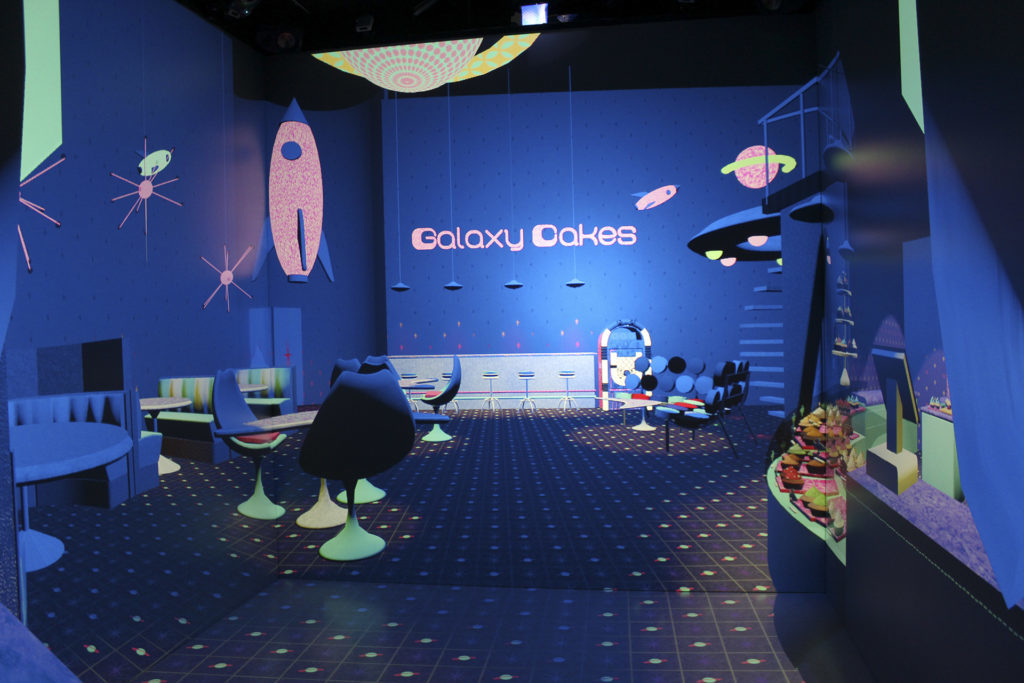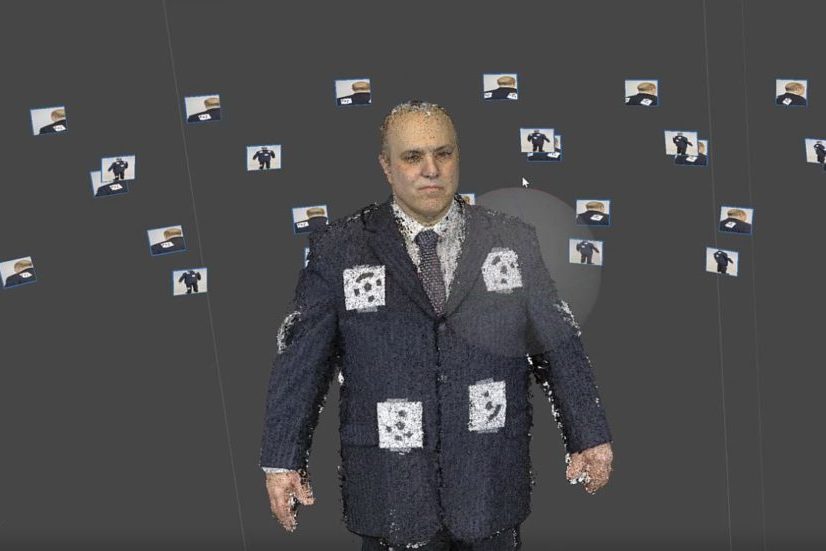The Emerging Technologies Group (ETG) offers access to facilities and expertise for advanced visualization, extended reality (XR/VR/AR) development, photogrammetry, motion capture, and related 3D technologies found nowhere else on campus, in an unrestricted format available to students, faculty, and staff in any discipline.
Services
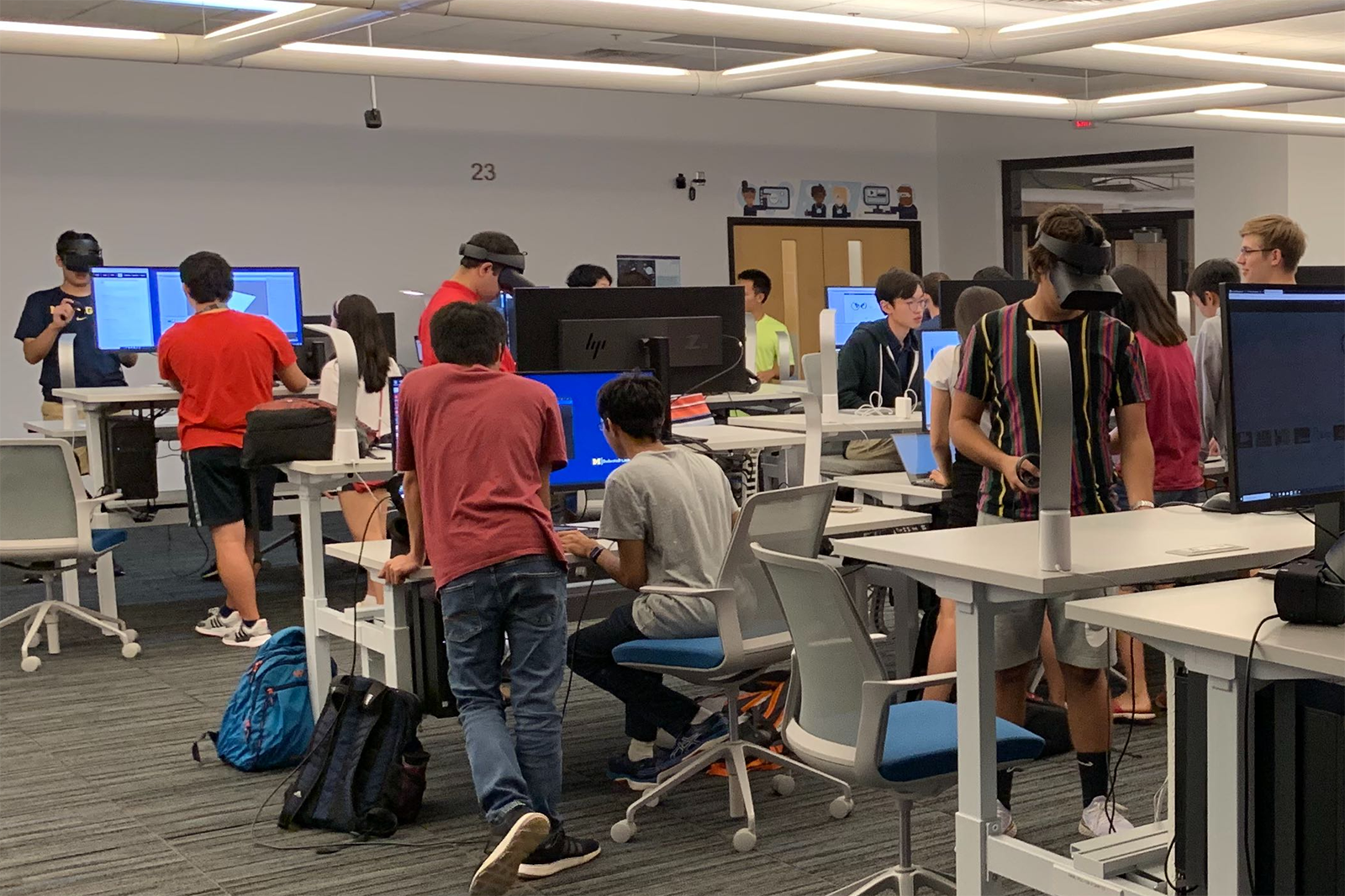
The ETG team enables research, project development, and course instruction using 3D visualization and XR technologies that would not otherwise be possible without the resources and support that we provide. Access is not limited to formal research teams or to instructors and students specifically for coursework. Users are welcome to pursue other academic and related personal interests.
- Support for 3D visualization technology and extended reality development infrastructure and services in the Duderstadt Center (computer workstations, software, 3D-specific peripherals and viewers).
- Operations of the Visualization Studio, MiDen and MoCap (motion capture) 3D environments.
- Instruction and workshops, including providing lecturers for courses in the College of Engineering and the Stamps School of Art and Design
- Consultation on application of 3D visualization technologies in research projects, course design and student projects:
- Data Visualization: Visualization of data that has been modified/filtered to help with understanding. (e.g. extracting gender/age from census report)
- Scientific Visualization: Visualization of unfiltered/unmodified data directly from its source, occasionally in real-time (e.g. digital “slicing” of MRI scans)
- Illustrative Visualization: Visualizing a concept or theory that is not represented entirely by its data. (e.g. animation depicting concepts around dark matter)
- Applications development: ETG staff have created both low-level code and applications-level software to enable new uses of hardware and software in support of research and instruction. We developed a unique software platform, “Jugular” (see below), to streamline the process of preparing visualization data for use in extended reality environments.
For more information on the advanced resources we can bring to your research, course, or project, and to see a portfolio of recent collaborations, visit: Visualization and Beyond.
Instructional Support and Student Engagement
The ETG staff have extensive experience in the successful integration of 3D technologies into course content in medicine, computer science, engineering, film studies, performing arts, the physical and social sciences, and the humanities. Whether the technology is a means for teaching or its application is the focus itself, we can provide consultation on curricular use, as well as providing workstations, advanced software, and peripherals (e.g., 3D headsets, scanners) for students. We also help students undertaking independent exploration of 3D applications.
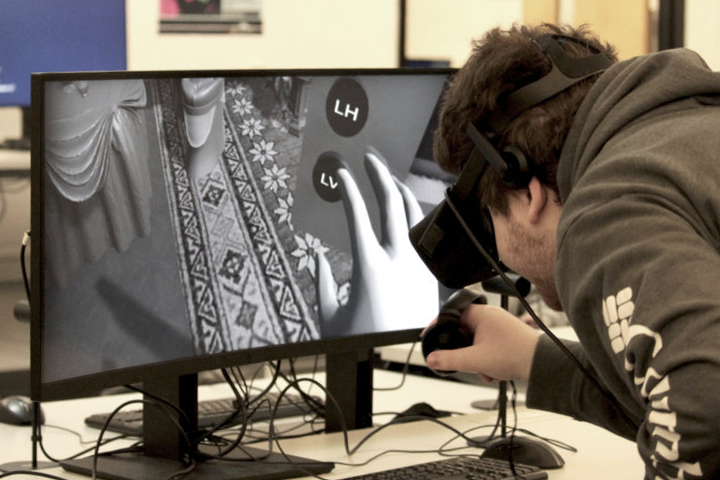
In addition to offering instructional resources, we also hire many students to assist in project development and studio operations, affording them a unique opportunity for deeper professional-skill development. They work alongside expert staff, their peers, and faculty in technology pipelines associated with forward-looking applications of 3D visualization and XR experiences emerging in a wide spectrum of disciplines.
Research Support and Applications Development
We have expertise and demonstrated success in support of research projects – experience that can reduce the up-front investment in time and personnel needed to find a suitable development framework, assemble the necessary tools, and source the technical support needed for productive work.
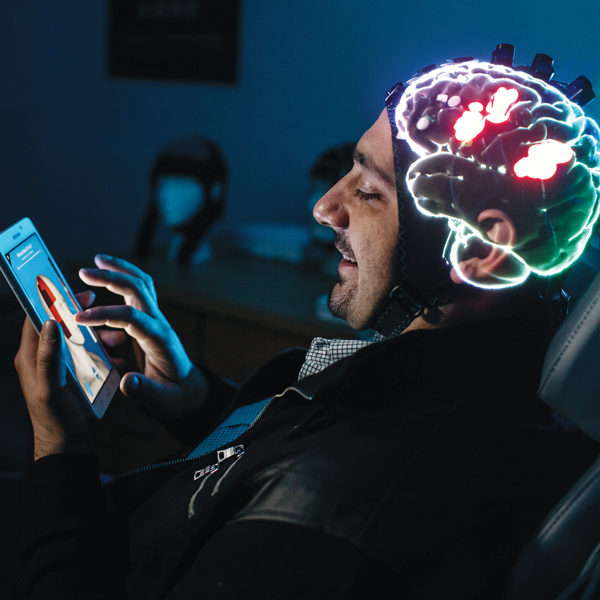
Serving a multidisciplinary research community at the scale of the U-M’s has enabled us to develop a continuum of tools that support your research in its key phases:
- Tools to analyze and interpret “raw” data and collections
- Methods for describing and publishing research results for peer review and grant applications
- Support and best practices for communicating research findings in the classroom and to general audiences
Even if you have nothing more than a general concept in mind, the best way to see if you’re on the right path or have fully considered what development means for your project, is to schedule a consultation with our group. Our team of experts can help walk you through the key questions, demonstrate various technologies, advise you on content creation, and bring in other resources from across campus (including opportunities for funding support) to bring the right resources for moving your project ahead. There is no fee for most consultation services.
ETG staff have created both low-level code and applications-level software to enable new uses of hardware and existing software in support of research and instruction. As an example, we developed the “Jugular” software platform to efficiently import data from diverse sources and formats into extended reality environments for advanced visualization, interaction, and exploration – including head-mounted VR and MR displays as well as the Michigan Immersive Digital Experience Nexus (MIDEN).
Our contributions to published work across a wide range of disciplines is available here: UM3D – Publications and Media Stories.
User Stories
Our users: students, faculty, and U-M departments have many engaging stories to tell about how our resources have made a substantive difference in their work. Visit our projects pages on the “Visualization and Beyond” site.
Partners
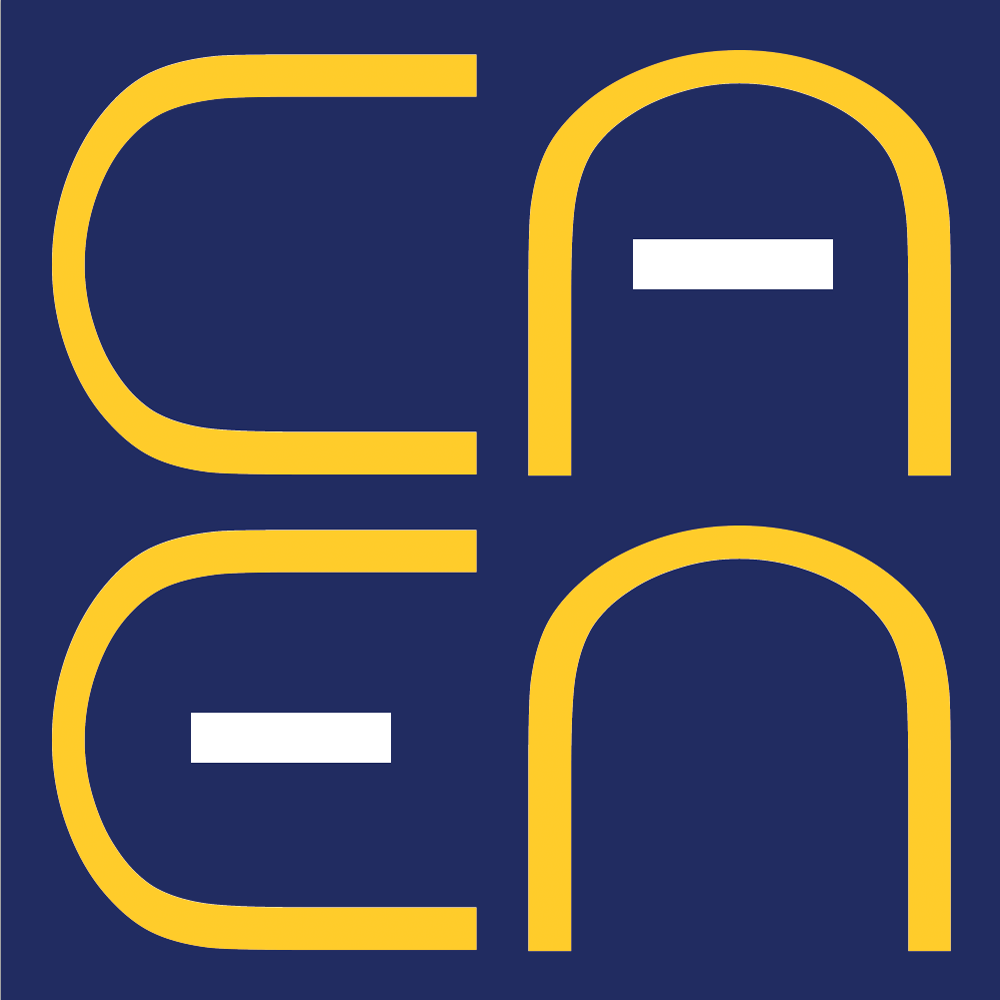
The Emerging Technologies Group is a unit of the Digital Media Commons. We partner closely with CAEN (the College of Engineering central IT staff) to coordinate 3D applications software and hardware environments in the Duderstadt Center with the needs of engineering students and other North Campus users.
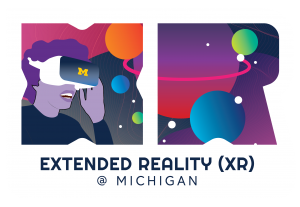
We also support the growing number of academic initiatives developed through the XR Initiative, a major program of the Center for Academic Innovation. The XR Initiative is bringing technical expertise, resources (including grant funding), and staff support to expand the role of XR methods and technologies in teaching, learning, and research, across a broad spectrum of disciplines at the U-M.
Our Vision Statement
The Emerging Technologies Group works to bring to life the vision of the Duderstadt Center to be a place that is always changing. To be an interface for the campus community seeking to explore and experiment with leading edge technologies and apply the tools to their specific discipline. The team’s mission is constantly shifting and continuously evolving to understand where research and industry are heading – both in developing content for XR platforms and in creating educational tools utilizing XR to revolutionize the way class content is taught and research is conducted. Though XR is one of our current points of focus, our role is to also understand and address other paradigm shifts.
